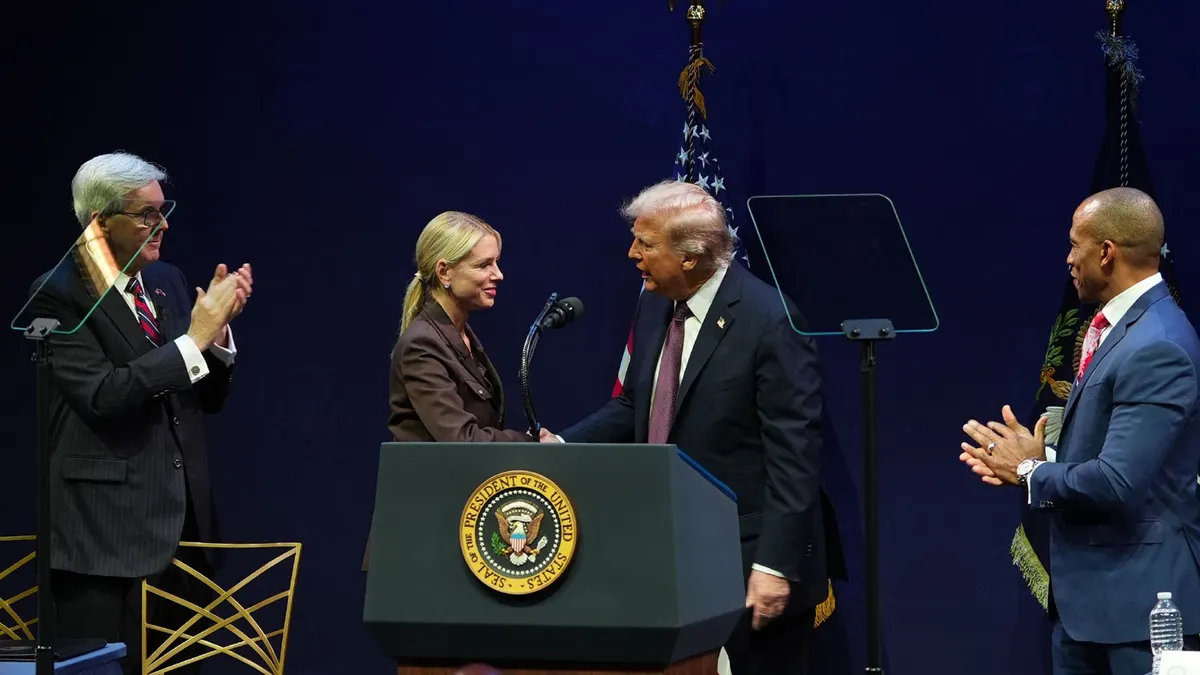Dive Brief:
- The U.S. Justice Department warned on Monday that public schools must provide parents with avenues to opt their children out of instruction related to sexuality and gender ideology — or risk being put under the microscope by the federal agency.
- The memo, issued by U.S. Attorney General Pamela Bondi, directed Justice's Civil Rights Division "to be alert" to violations of parental rights at schools and for U.S. district attorneys nationwide to weed out and respond to "credible threats against parents."
- "While schools must maintain order, such authority cannot be used as a pretext to silence dissent or punish parents for expressing their views," Bondi wrote in her memo to all 93 U.S. attorneys and FBI Director Kash Patel. "Let me be clear: when school board members, administrators, and other government officials threaten law-abiding parents, they can and will be held accountable."
Dive Insight:
Bondi cited a "rise in abusive conduct" by "government actors" against parents, noting that "conspiring" to violate constitutional rights is a federal crime.
The letter referenced the recent U.S. Supreme Court decision Mahmoud v. Taylor, in which justices found that Maryland's Montgomery County Public Schools violated parents' rights when it didn't allow them to opt students out of LGBTQ+-inclusive curriculum based on religious objections. The state's largest school district had originally allowed parents to exclude their children from the curriculum, but it backtracked after what it characterized as a high number of opt-out requests creating "unworkable burdens" for educators.
Bondi's Sept. 8 memo pointed to “a disturbing trend" in recent years of state and local officials ignoring, dismissing and in some cases retaliating against parents who opposed curriculum decisions in public schools.
When asked about instances of abusive conduct from government actors against parents, the Justice Department cited examples from its Monday event on religion in public schools hosted by the newly-formed Religious Liberty Commission.
Some examples surfaced at that event include instances of students being asked to pray out of sight rather than publicly in front of other students, parents not being able to opt their children out of gender issues in curriculum, and administrators curbing students' religious speech or expression on clothing.Bondi's call to action against schools that don't make room for parental dissent and opt-outs stands in stark contrast to events that unfolded under the Biden administration, when school leaders reported feeling concerned in light of parents' threats and rowdy behavior at school board meetings. Those reports came at a time of increasing divides between parents and education leaders over controversial pandemic-related issues such as masking, vaccination requirements and distance learning.
Those issues fueled the parental rights movement, which is also the impetus behind many recent waves of education legislation in the states, including LGBTQ+ restrictions.
Around that time, in 2022, a report found that growing political conflict was harming efforts at respectful dialogue in schools and erecting barriers to addressing misinformation. The report, based on a survey of nearly 700 high school principals, came from the Institute for Democracy, Education, and Access at the University of California Los Angeles and the Civic Engagement Research Group at the University of California Riverside.
School leaders surveyed reported harassment and demeaning rhetoric, which they said was interfering with K-12’s mission to encourage a diverse democracy.














